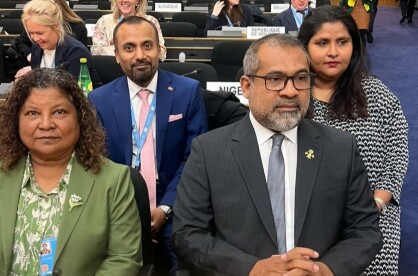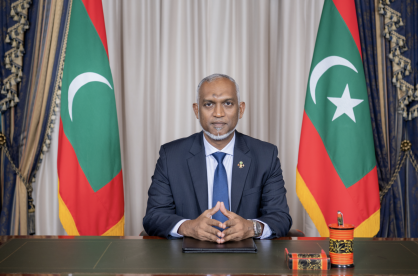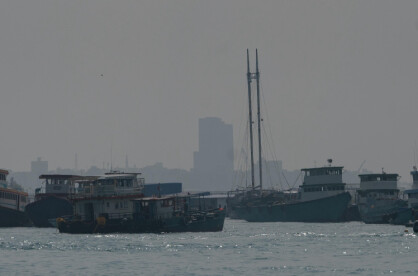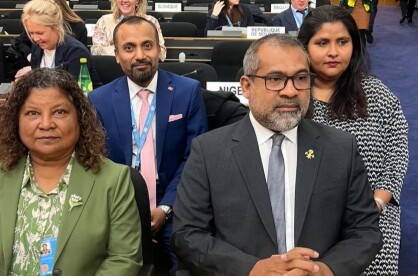With the advent, and proliferation, of multiple instant communication platforms, the sanctity of communications between the state and the people are experiencing a certain disconnect. Where once letters, delivered by post or by hand, were deemed official statements and legally binding, the equivalent technological shift to email has yet to see as wide an acceptance.
The power of social media is a global reality. Misinformation spreads like wildfire, sometimes putting lives at risk. Lifesaving announcements by governments have managed to reach the most unreachable of constituents. Real-time responses by relevant departments have allowed the public to not just be more informed, but also be more at ease with the idea of governance. Yet, as seen in the Arab Spring, social media can also be the first domino that brings down entire governments.
The Maldivian political system has been, as always, late to the party, mainly utilising social media platforms as just a smoke and mirrors campaigning tool for years. The modern day "with me or against me" attitude has muddied the place of social media in society. Over the years, more news sources have popped up, using their platforms to spread awareness but equally, if not more so, to propel propaganda — the promise, the potential of progress, transparency and accessibility, has largely remained unfulfilled.
To paint a clearer picture of today’s situation, a recurring theme is how following the ‘proper’ channels are not as effective as posting discontent on public social media platforms. When applying for services or voicing complaints through official email channels, or through dedicated hotlines, the Maldivian public have traditionally not been met with timely, and satisfactory, responses. Post screenshots of emails or requests ignored, however, and the wheels seem to begin turning, especially if a post gains traction.
Another important aspect is how social media acts as a megaphone for those in positions of power. These platforms provide lawmakers the opportunity to generate awareness and gauge public opinion on legislative matters; vital functions for a healthy, aware, democracy. They, as direct representatives of the people, can utilise these platforms to call out state bodies for genuinely falling short, thereby ensuring transparency and trust between them and their voting public. However, the issue arises when these officials voice private opinions on this stage that the public has awarded them, trying to influence their followers to meet their own ends. There have been, and continues to be, multiple attempts made to use their public platform to generate discord against political opponents, and to discredit the media and those they do not agree with.
One of the biggest breaches of personal data in the Maldives happened recently in a misguided, and shortsighted, tweet by a government official. Private information, including the names and national identification numbers, of those who had applied for a government relief program was callously made public. A half-hearted apology was thereafter offered, and links were deleted. Had the same happened anywhere else in the developed world, this breach in privacy would have triggered investigations and reprisals. In the Maldives, however, such mistakes are par for the course.
Any statement made by a political appointee, while in positions of power, carries the weight of establishing policy. When confronted by the general public or even MPs, the responses they give on public platforms, both on private and official accounts, can be construed as political-level statements. Yet there often seems to be no distinction between political blustering and policy, perhaps conveniently forgetting that the institution — Parliament — to which they humbly subject themselves to for questioning, was elected by the very people at whom they lash out against on social media. The days of the composed, level-headed, statesman had now sadly, with the advent of social media, been relegated to the practices of the authoritarian past.
Some agencies have increasingly stepped up their social media efforts for the better. Updates provided by the Health Protection Agency have largely been embraced by the public. However real-world responses to emergencies and hotline queries have continued to draw public ire; highlighting perhaps the other drawback of social media, where maintaining a veneer of responsibility is prioritised over the action that goes along with it. Recently it was rightfully pointed out that the largest spike in pandemic related deaths came after the local council elections were held in the face of warnings by healthcare professionals. Yet, the government, including the President, overlooked this factor, instead shifting blame to the common citizenry. This flies in the face of citizen engagement. Trust is fickle, and right now, trust is non-existent, and this needs to be addressed.
When it comes to policy, social media can be utilized as an engagement tool, provided the proper context is set beforehand. Take for example the recent internet price reduction; the government could have used social media as a tool to invite public discussion, to show transparency in how the decision came into being. This would have made the public a lot more receptive to the eventual changes as well. Yet while the benefits are keenly touted by the administration, calls for additional information on concessions made to two of the largest profit-making entities goes largely unheeded.
Genuine citizen engagement is crucial, and so far, communications have been quite one-sided. Clearly measured, and layered, processes need to be adopted.
It is well past time for social media to be used just as a public relations tool. Agencies and officials need to embrace the potential of social media towards bolstering governance and transparency; not just through posts but through real world follow through in terms of action and policy. In so far as governance in concerned, social media needs to be an extension of state bodies, utilised solely in the interest of the state and not in the interests of the personalities who hold the reins on those handles.







